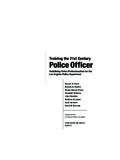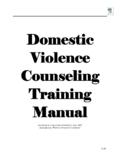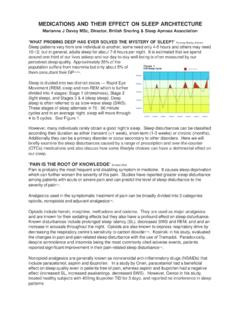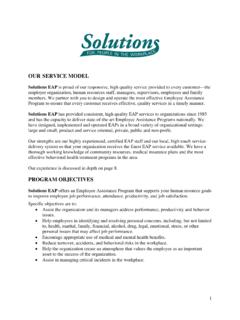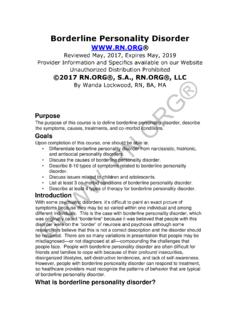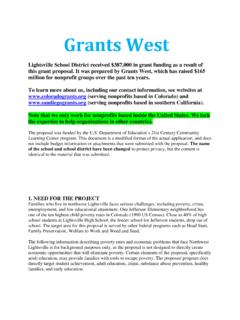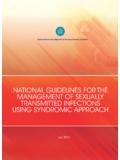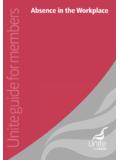Transcription of Intellectual Property Rights and Access to …
1 Intellectual Property Rights and Access to Medicines: A South-East Asia perspective on global issues Regional Office for South-East Asia SEA-TRH-003 Distribution: General Intellectual Property Rights and Access to Medicines: A South-East Asia perspective on global issues Regional Office for South-East Asia World Health Organization 2008 All Rights reserved. Requests for publications, or for permission to reproduce or translate WHO publications whether for sale or for noncommercial distribution can be obtained from Publishing and Sales, World Health Organization, Regional Office for South-East Asia, Indraprastha Estate, Mahatma Gandhi Marg, New Delhi 110 002, India (fax: +91 11 23370197.)
2 E-mail: The designations employed and the presentation of the material in this publication do not imply the expression of any opinion whatsoever on the part of the World Health Organization concerning the legal status of any country, territory, city or area or of its authorities, or concerning the delimitation of its frontiers or boundaries. Dotted lines on maps represent approximate border lines for which there may not yet be full agreement. The mention of specific companies or of certain manufacturers products does not imply that they are endorsed or recommended by the World Health Organization in preference to others of a similar nature that are not mentioned. Errors and omissions excepted, the names of proprietary products are distinguished by initial capital letters.
3 All reasonable precautions have been taken by the World Health Organization to verify the information contained in this publication. However, the published material is being distributed without warranty of any kind, either expressed or implied. The responsibility for the interpretation and use of the material lies with the reader. In no event shall the World Health Organization be liable for damages arising from its use. This publication does not necessarily represent the decisions or policies of the World Health Organization. Printed in India Page iii Contents Page Acknowledgements .. v Abbreviations and Introduction .. 1 1. Background and context .. 1 2. Evolution of the multilateral trading system .. 4 3.
4 Patents .. 6 4. TRIPS, the Doha Declaration and public health .. 11 5. The use of safeguard mechanisms in 21 6. Recent developments .. 25 7. Protection of traditional knowledge and public health .. 31 8. New paradigms for supporting research and development .. 33 9. Case studies: Bangladesh and India .. 35 10. Conclusion .. 39 41 References and further reading .. 43 Annexes Doha Declaration on the TRIPS Agreement and Public 45 List of participants and resource persons .. 47 Page v Acknowledgements The first draft of this report was written by Dr Amit Sen Gupta, based on presentations at the intercountry seminar on Intellectual Property Rights and Access to Medicines, held in Dhaka, Bangladesh, on March 6-8, 2006.
5 It also draws on the presentations and discussions at that workshop, and on contributions of workshop participants (see list in annex 2). The report was revised and updated1 by Kathy Shapiro, based on input from the SEARO Trade and Health Working Group. 1 The text has been updated for major developments through Dec. 2007. Page vii Abbreviations and acronyms FTA free trade agreements GATT General Agreement on Tariffs and Trade IP Intellectual Property IPR Intellectual Property Rights LDC least-developed country MFN most favoured
6 Nation NCE new chemical entities R&D research and development SPLT Substantiative Patent Law Treaty TBT (Agreement on) Technical Barriers to Trade TRIPS (Agreement on) Trade-Related Aspects of Intellectual Property Rights WHO World Health Organization WIPO World Intellectual Property Organization WTO World Trade Organization Page 1 Introduction This report starts by providing some background on the evolution of the multilateral trading system and on the relation between Intellectual Property Rights /patents and Access to essential medicines. It highlights key developments at the international level, as well as country experiences and actions in the Region and beyond.
7 Further, it touches on concerns related to traditional medicines and questions regarding innovations. The report tries to put the various developments in a broad context, in order to facilitate understanding of the issues at stake and to inform action by countries. 1. Background and context WHO estimates that one third of people in the world have no Access to medicines; this includes a large number in South-East Asia. The Region is comprised of countries with diverse situations in terms of economic development, development of the pharmaceutical sector, Intellectual Property Rights (IPR) legislation and health delivery infrastructure. Given this diversity, a single solution to Intellectual Property (IP) issues is not possible for the Region.
8 There is a need to understand IP issues in their complexity, to share country experiences and to understand the impact of country-specific changes on Access to medicines in the Region. Medicines should be available on the basis of need rather than the ability to pay. Where trade agreements affect health, priority must be assigned to health aspects. This is not always easy to accomplish given that apparently simple issues may hide enormous complexities. For example, a simple proposal that all drugs must be free of import tariffs can have entirely different consequences depending on the situation in a particular country. In a country dependent almost entirely on imports, such as Bhutan or Maldives, this measure would bring down prices and improve Access .
9 On the other hand, where there is a nascent or small domestic industry as for example in Nepal, this measure can harm domestic production of low-cost Intellectual Property Rights and Access to Medicines Page 2 generics and eventually lead to the import of more expensive medicines. Hence there is a need for countries to formulate, within the relevant international frameworks, their own policies based on a balanced evaluation of local conditions and needs. WHO perspective on Access to medicines: Access to medicines is a human right The affordability of essential medicines is a public health priority Essential medicines are not simply another commodity Patent laws should be managed in an impartial way and strike a balance between the incentives provided to stimulate innovation and public health needs WHO supports the incorporation of TRIPS flexibilities in national legislation, in order to protect public health Source: WHO.
10 Globalization, TRIPS and Access to pharmaceuticals, WHO, Geneva, 2001. WHO addresses its mandate by providing guidance on the revision of national pharmaceutical legislation, and by increasing awareness and information regarding the public health implications of the Agreement on Trade-Related Intellectual Property (TRIPS). This includes monitoring of the effects of globalization and TRIPS on Access to medicines through different mechanisms. In the South-East Asia Region, several countries are taking active steps to safeguard Access through legislative measures that involve IP laws. Issues for developing countries in relation to trade and IPR Patents are meant to encourage innovation and thus promote the development of new and useful products, including new medicines.







